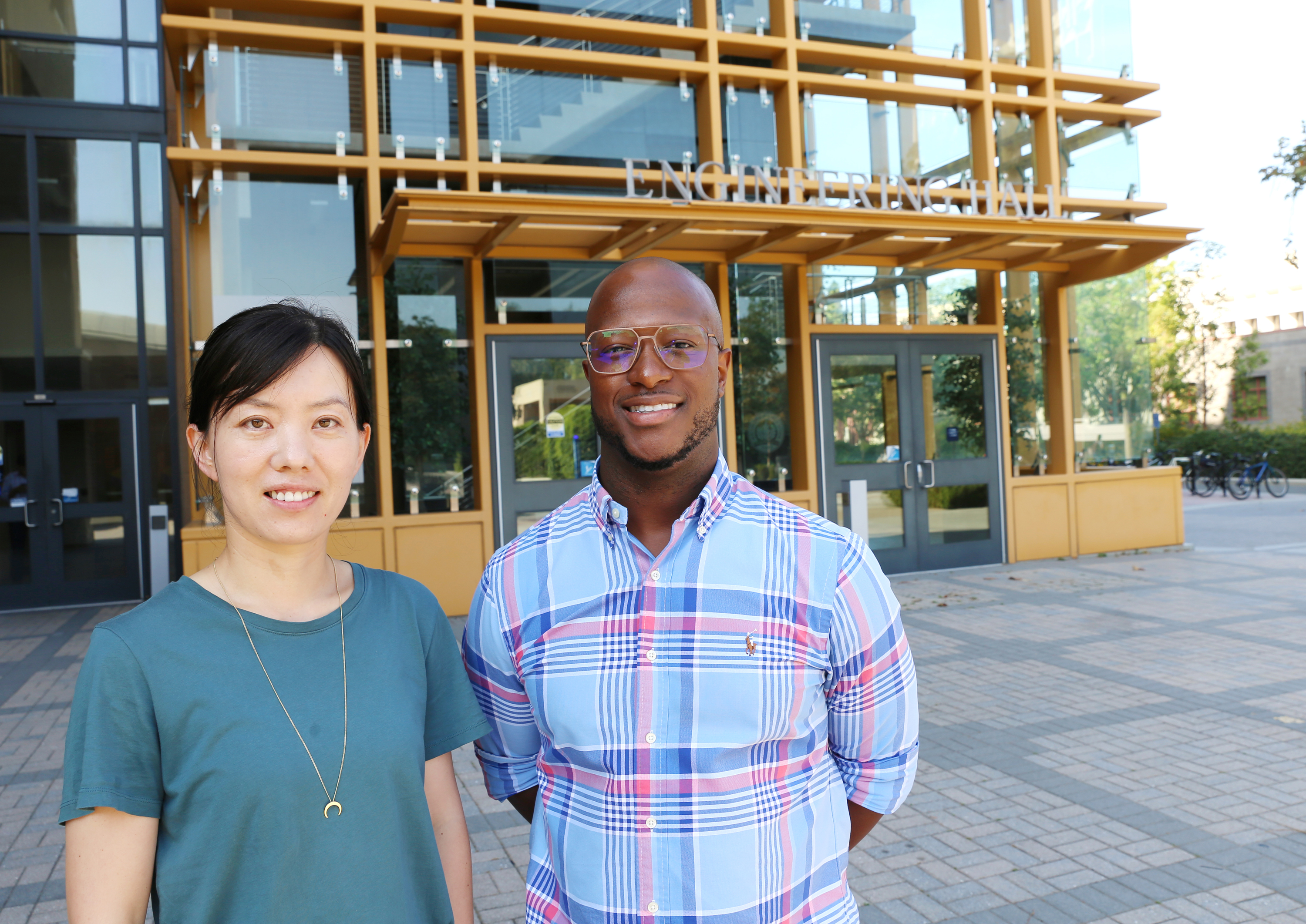Two UCI Engineers Named NIH New Innovators

Oct. 1, 2019 - The National Institutes of Health has granted 2019 Director’s New Innovator Awards to two Samueli School engineering faculty. Han Li and Tim Downing will each receive around $2.2 million over five years for their research. The award supports unusually innovative biomedical research from early career investigators.
Li hopes to develop a universal method in metabolic engineering to enhance the biological production of nature-derived medicines, which include key antibiotics, anti-cancer and pain medication drugs. Natural products are small molecules produced by biological systems, but often in small quantities. Metabolic engineering promises to move the biosynthetic pathways of these medicinal small molecules from their native producers into heterologous hosts such as bacteria and yeast, which can be cultured in large-scale, low-cost industrial processes.
“Once such a method is developed, these medicinal compounds, which cannot currently be obtained in a scalable and reliable way, can potentially become more widely available,” said Li, assistant professor in chemical and biomolecular engineering.
Downing looks at how the physical forces and changes in mechanical properties of cells and tissues contribute to development, cell differentiation, physiology and disease (mechanobiology). Specifically, his research will shed light on how mechanical cues integrate with and give rise to disease-driving epigenetic mutations. He plans to build tools and technologies that enable spatial epigenetic and mechanical measurements in tumor tissues, helping to reveal these molecular connections for the first time. This research will ultimately lead to the development of new therapeutic approaches for the treatment of colon cancer and other solid tumor cancers.
“It’s an honor to be recognized with one of NIH’s most prestigious research awards," said Downing, assistant professor in biomedical engineering. “My lab is very excited to use these funds to help us bring our expertise and innovative ideas in epigenetics and mechanobiology into the realm of cancer research to ultimately discover better treatment options for patients.”
The NIH awarded 60 New Innovator awards in 2019 as part of its High-Risk, High-Reward Research Program, which funds highly innovative and unusually impactful biomedical or behavioral research proposed by extraordinarily creative scientists.
– Lori Brandt
